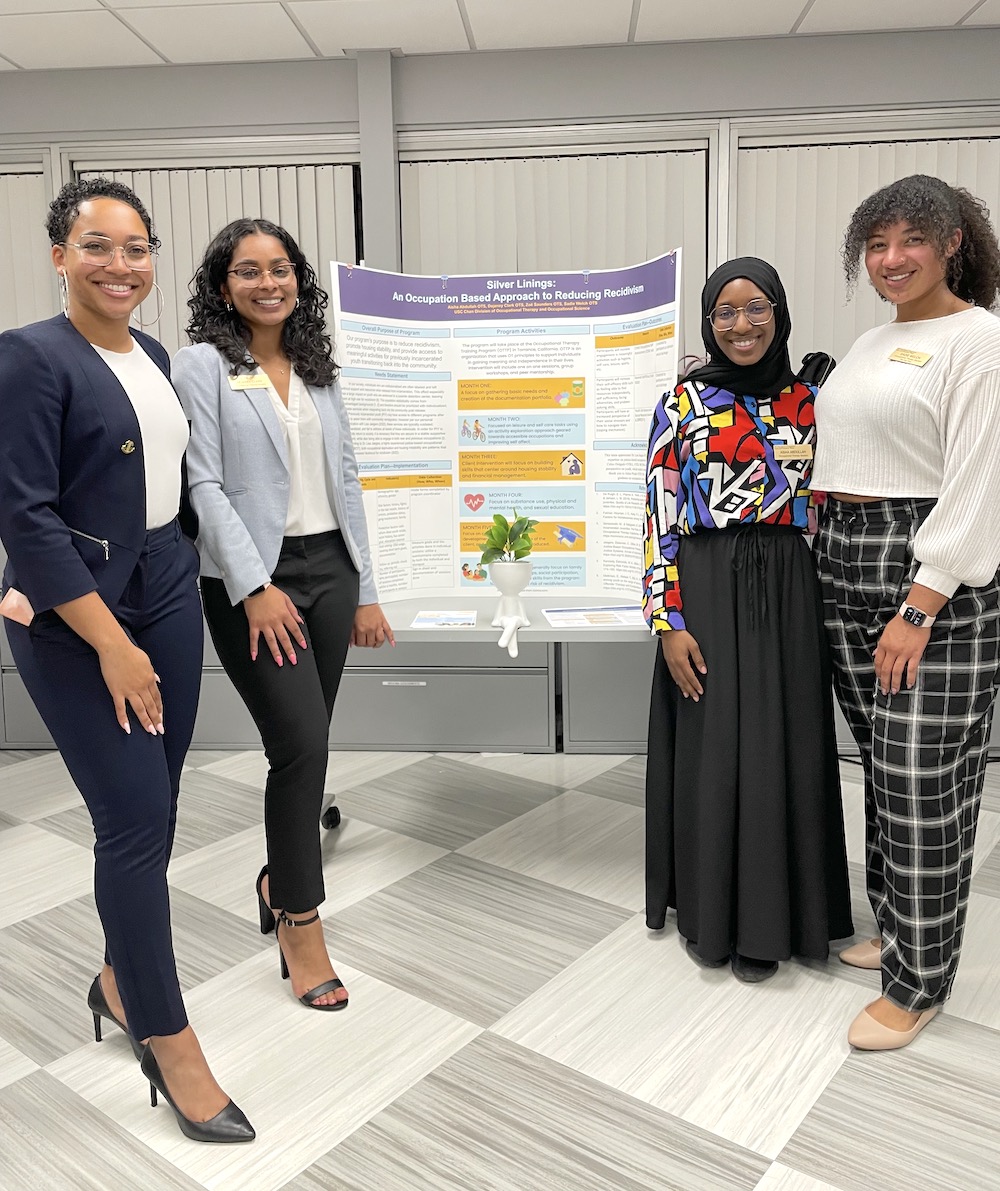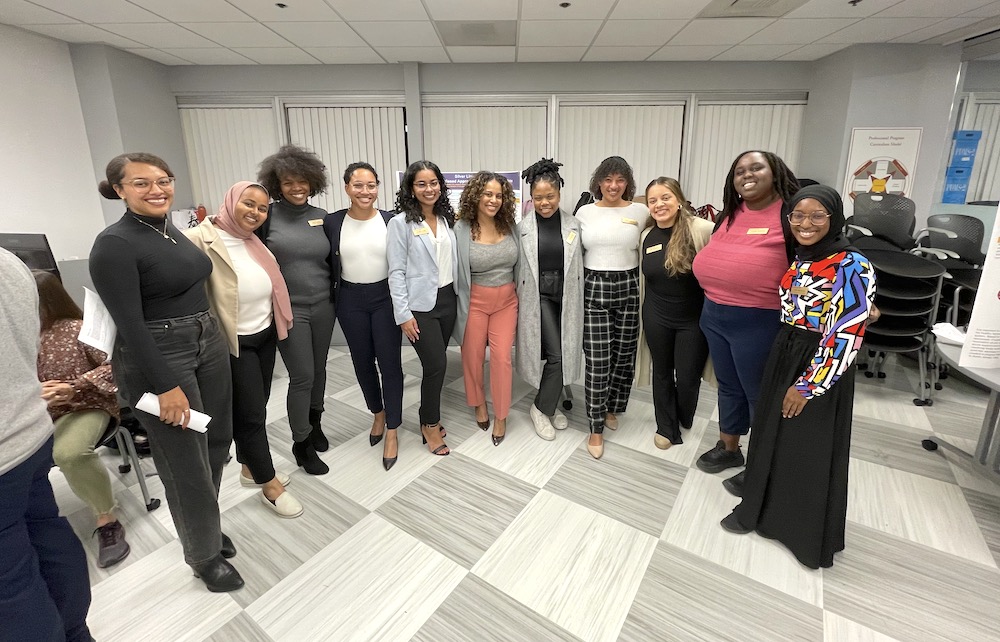Student Blog
Diversity
What I Learned in a Week as a Medical Volunteer in Panama ⟩
December 13, 2024, by Guest Author
Classes Community Diversity Getting Involved International
By Carly Martinez OTR/L, USC Chan Post-Professional OTD student

Carly Martinez OTR/L
When you read the name of the country Panama, what comes to mind? If you’re anything like me until about a month ago, your knowledge consists solely of the famed Panama Canal. After spending 8 days there as a medical volunteer, I won’t pretend to be an expert, but I can give you a brief glimpse into my journey.
During the first semester of my post-professional OTD, I decided I would take what I thought would be my final elective, MEDS 577, Global Palliative Care with Dr. Ben LaBrot. It felt significant for me as a practitioner because I had learned a little bit about hospice and palliative care through my master’s program at USC, and knew that occupational therapy (OT) had a role to play in that area. At the same time, it still felt like we had only skimmed the surface. Through that course, I learned a lot about autonomy and dignity, values my professional OT education had espoused, however, this was a deeper dive into this particular context.
A few weeks into the course, Dr. LaBrot shared that he would have to record class since he would be in Panama. After class the following week, some students stayed after class to ask the professor about another course he taught. While unintentionally eavesdropping, I learned that he was the founder of a medical volunteering organization, Floating Doctors, based out of Panama. Excited at the possibility of going abroad again as part of my OT education, I asked if his program accepted occupational therapists. He was enthusiastic about my participation and clearly an ally of occupational therapy through what he shared in the curriculum. It would count as my final elective, and I could get credit for volunteering through MEDS 554.
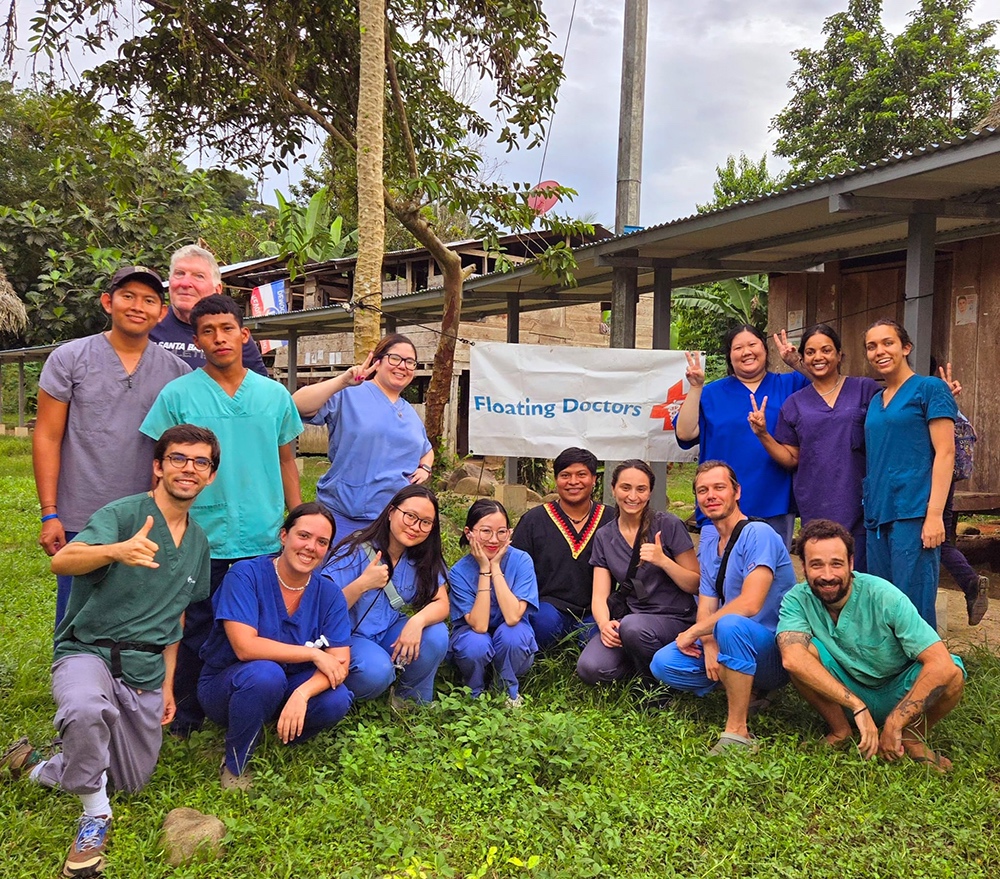
Volunteers for the week including physicians, a veterinarian, a dentist, medical students, and one OT.
Months later, I would find myself in a rainforest, translating for a classmate who graduated from medical school in Indonesia, learning how best to explain things to individuals who grew up in a completely different context than myself. Floating Doctors works with the members of the Ngäbe, an indigenous population in the Bocas Del Toro province of Panama. This region is designated as part of the Ngäbe-Buglé comarca, an officially recognized province that is part of how the nation is divided, similar to statehood, which allows for self-governance among the indigenous population. To get there, I flew from LAX to Panama City, then travelled to a second, smaller airport in Panama City to fly to Bocas del Toro, an island in the northern archipelago region of the country.
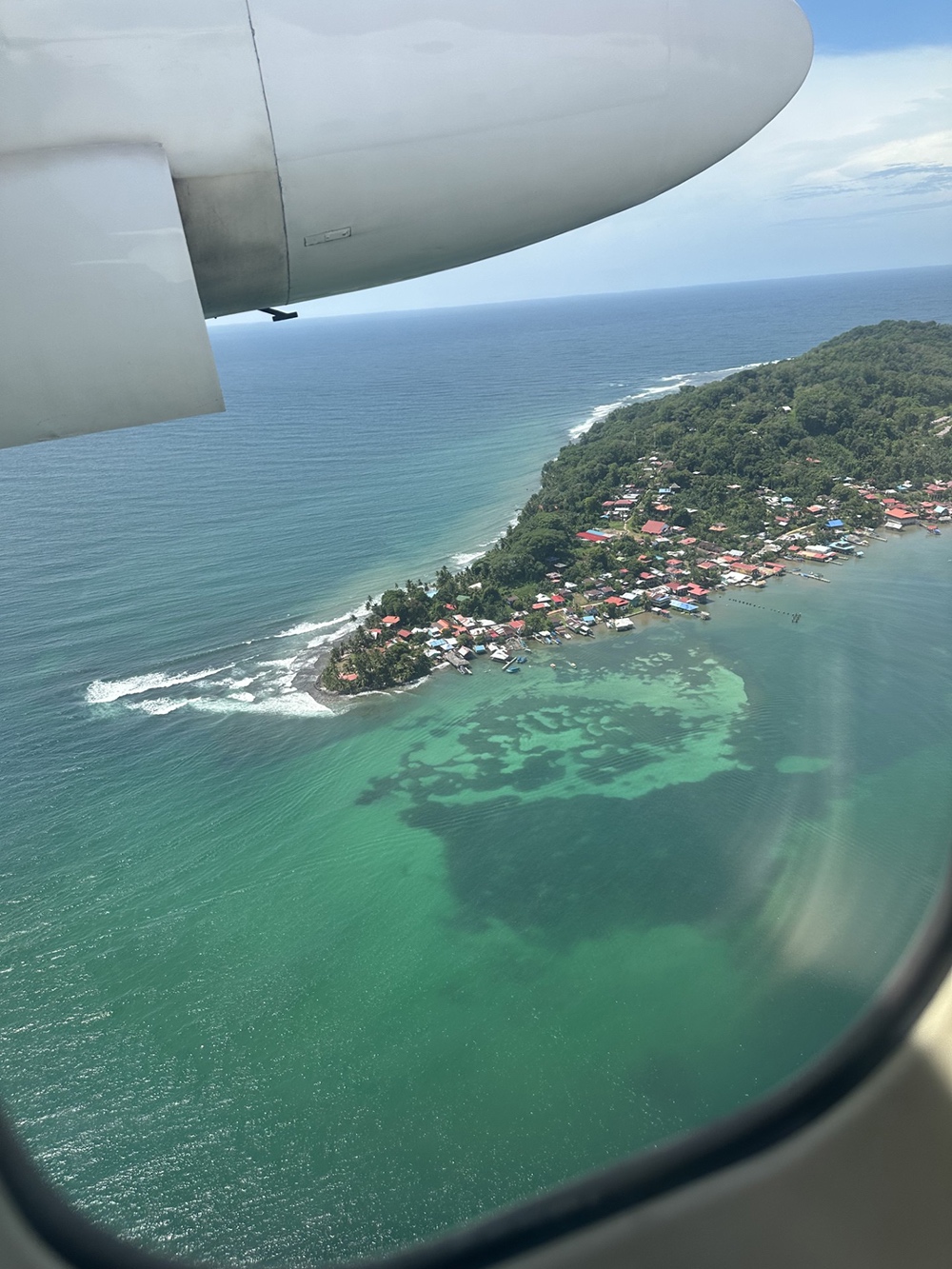
Preparing to land in Bocas del Toro
During clinic, we slept outdoors in the rancho where we provided services in hammocks strung from metal beams and bathed in the river, as do the community members. However, I will say that it was not the most rugged camping experience of my life. We had indoor plumbing, could purchase wifi from a nearby home, and had meals cooked for us by local women. Patients brought goods to sell, like the best chicken empanadas I’ve ever tasted, sizable chicken tamales wrapped in banana leaves, and artisanal breads. Some families told me they walked for a day through the mountainous terrain to be seen by the doctors. Did I mention that the weather hovered around 90 degrees and 100% humidity? The patients came well-dressed, with women in nice dresses and men in polos and jeans. I got the feeling they were dressed up to see us, but also because they would be seen by many other people who were also attending the clinic.
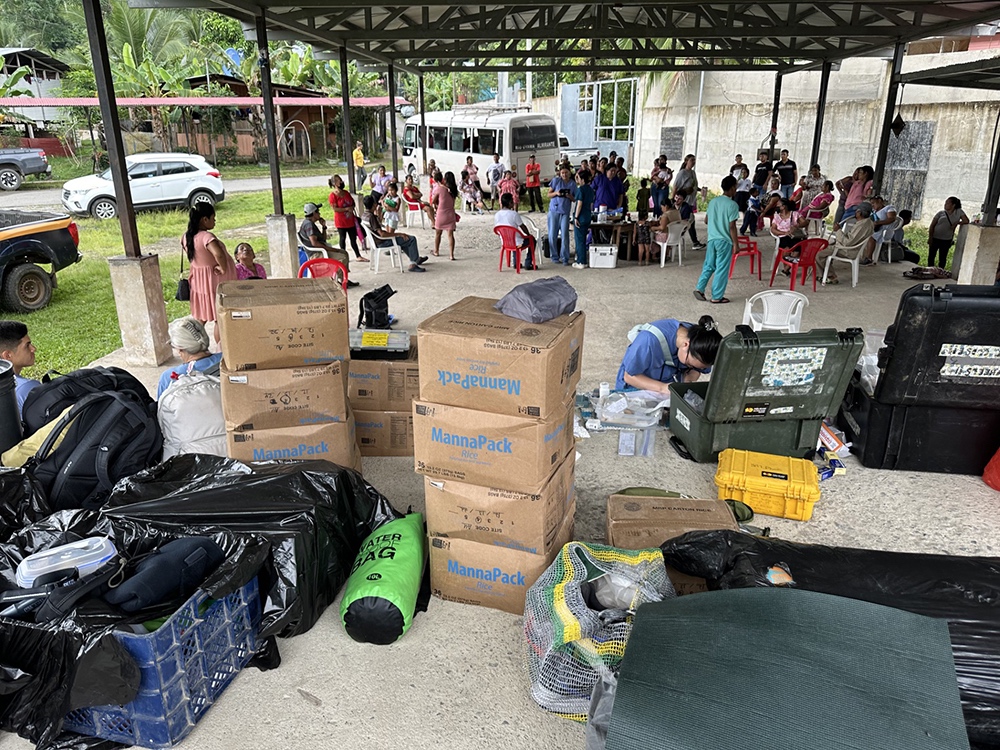
Preparing for a day of clinic. Folks were lined up before we arrived.
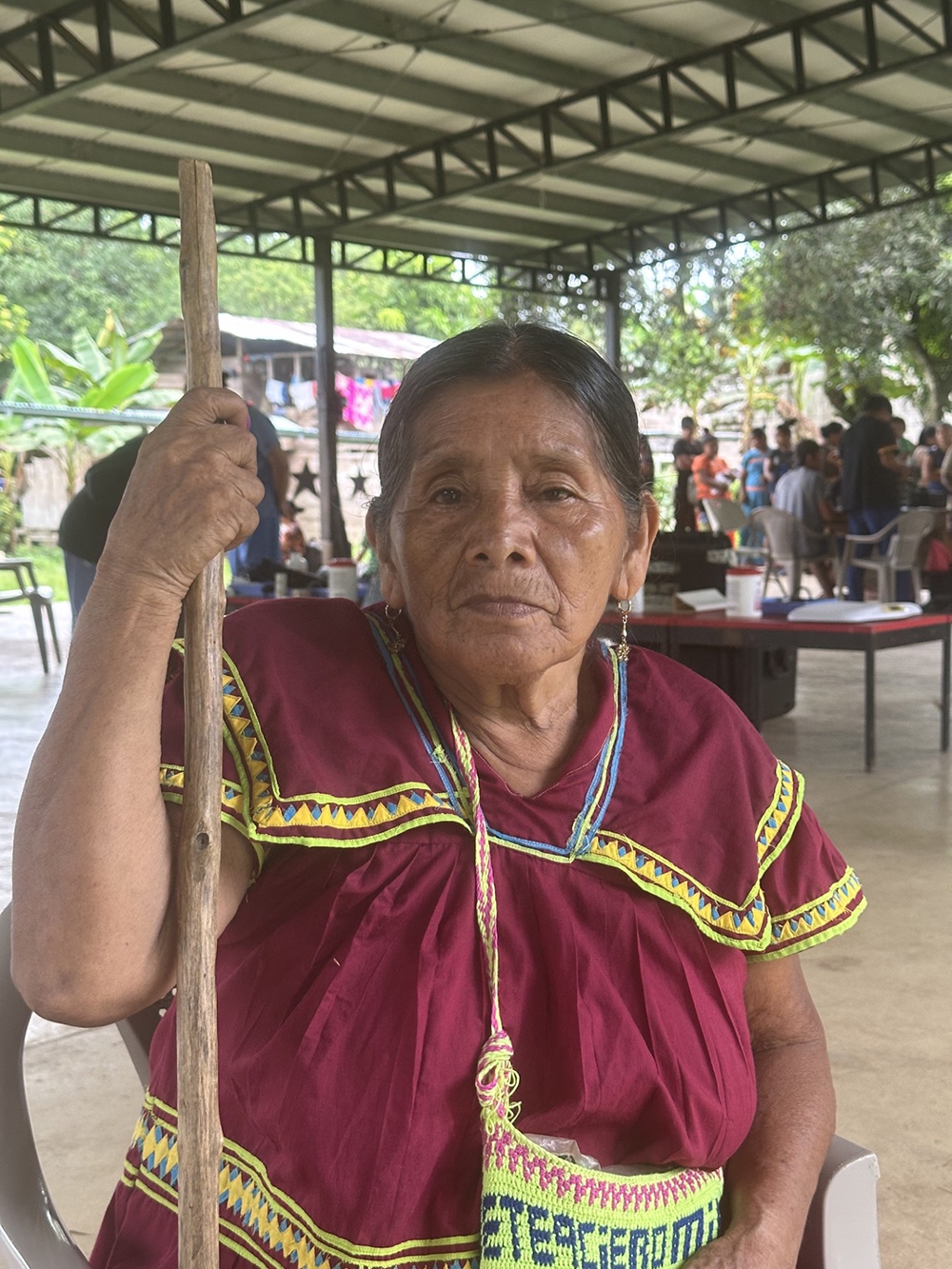
A visitor to the clinic wearing a traditionally-adorned dress (photo taken with permission).
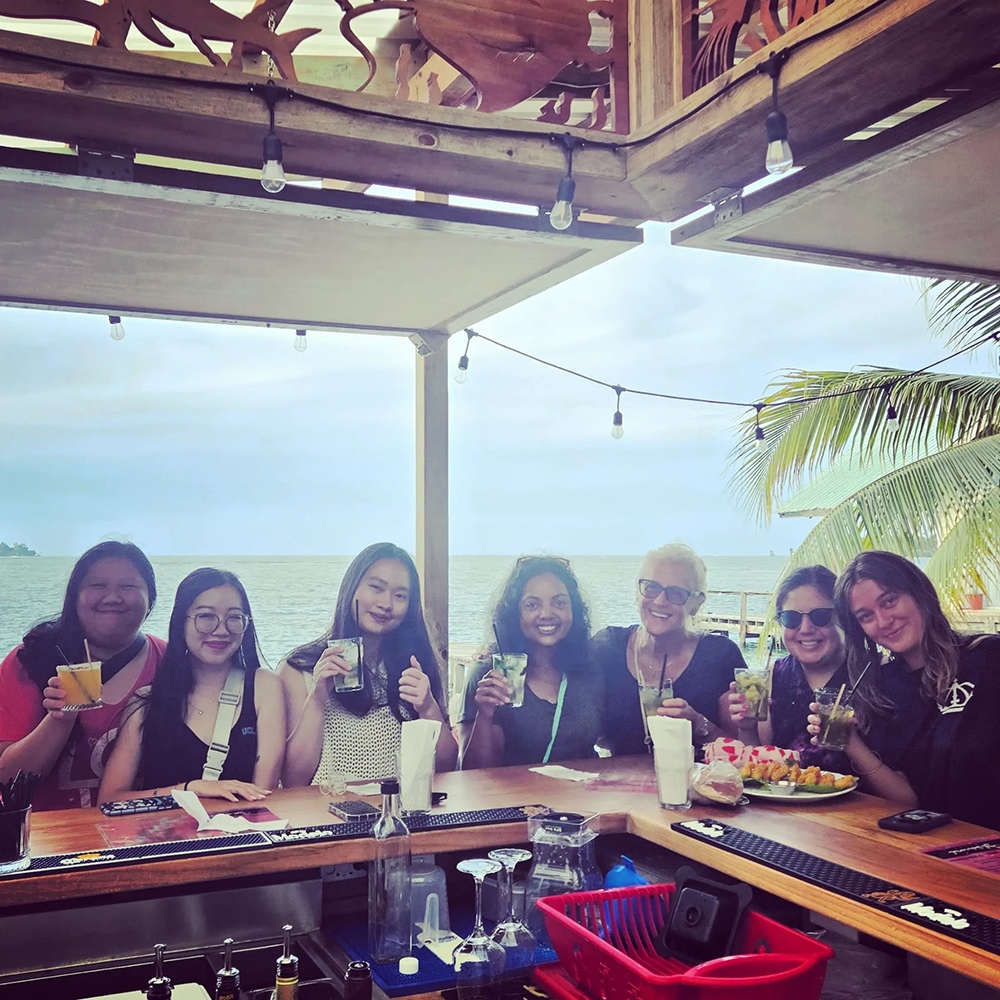
Enjoying refreshments (with ice!) with other volunteers in Bocas after a successful week of clinic.
Visitors to the clinic generally fall into two categories: fast lane or chronic. Fast lane is for new or relatively simple cases, such as needing paracetamol to manage fever, albendazole for concerns about parasites, or birth control injections. Chronic patients are seen every three months, as the team returns to each site regularly, cycling through the 28 sites they service. Though the providers change, there is still consistent care for diabetes, hypertension, and asthma, to name a few of the more common conditions. Patients can have their names put on a list for a doctor who comes by to perform cataract surgery as part of another program. Referrals can also be given in cases where a patient requires more or specialist care, such as the case of a 6-year-old girl who seemed to be struggling in school, based on her mother’s description. Though I did an informal writing assessment, she would need more testing to determine if she was reaching developmental milestones, something the organization is not equipped to offer at this time.
To be seen by specialist medical providers, they would need to go to a major town nearby. Although this community had a medical clinic nearby, the resources there were limited. Travel to David, a town with more medical resources, would require a bus ticket and potentially a stay in the city, a prohibitively expensive expenditure for some of the patients. Boquete is closer, though it is not as well-resourced and still requires a bus ticket to get through the mountains on rocky dirt roads, which do not have lights, limiting travel for safety reasons.
This trip felt challenging to my professional identity. As a new practitioner, I worry about the role OT can play in different contexts. The lead medical provider for the week was not familiar with OT, or Ergotherapy as it is often referred to in Europe. He told me that this does not exist in his home country of Russia. The World Federation of OT only credentialed the University of Panama’s OT program last year, in 2023. I wondered about the relevance of the profession to people whose activities of daily living (ADLs) likely consist of more life-sustaining occupations than mine do, such as gathering water or washing clothes by smacking them against rocks in the river, in addition to household management tasks like washing dishes and cleaning the house.
I could see the applications of OT for those who worked cutting bananas, as they suffer from repetitive motion injuries, for children in school, and likely, for individuals with mental health concerns, if I were to speculate. However, I also acknowledge that I don’t really know much about their everyday lives because I didn’t have the opportunity to get to know them in the ways that would be necessary for an OT evaluation. I longed to know more about what an average day is like, as this would allow me to begin imagining what role occupational science (OS) could play in trying to understand what life is like for the Ngäbe. If OS has taught me anything, it is that I am not an expert on the culture of the Ngäbe. In order to work with a population in a way that garners buy-in, one has to try to understand the values to support what is important to their patients.
All of this is not to paint a picture of an area with fewer resources; after all, there are rural areas of the US with limited access to hospitals or routine medical care. Instead, I hope that Panama provides opportunities for OT and OS to continue to develop in multiple contexts, ranging from the traditional academic experiences OT graduates may have in the larger metropolitan areas, to the volunteer OT services with Floating Doctors, as well as others yet to come.
For my final occupational therapy doctorate (OTD) project, I created a set of OT practice guidelines or a white paper, in support of the development of OT services for Floating Doctors. The hope is that this will allow for the expansion of OT services within the organization, encouraging more OT volunteers to attend, and familiarize the individual medical providers with the scope and potential interventions OT can provide. It will also be part of the information Floating Doctors provides the Panamanian government to continue its services there.
⋯
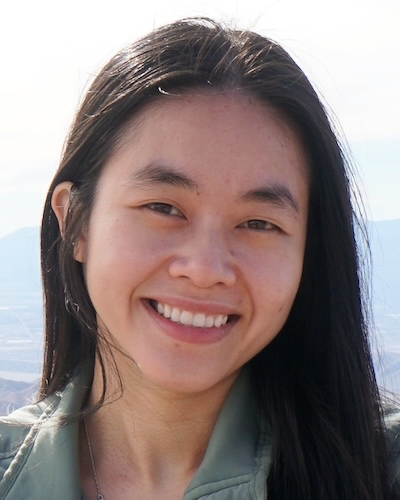
My Vietnamese Immigrant Dad Doesn’t Know What I’m in School For ⟩
May 29, 2024, by Dana
Diversity First-Gen International
Growing up in a Vietnamese immigrant family, there were always high expectations of my siblings and me to get a career that is well-known. After high school, I knew I wanted to pursue occupational therapy, but because it was not a common major nor was it something my dad knew about, I decided to major in Psychology because it was a study that I was actually able to translate to my dad. Because it is a well-known field of study, it was expected that I would continue with Psychology in higher education, and with that, my dad had ingrained that I was going to get a doctorate in Psychology. He was telling my extended family and everyone he knew that that was what I was pursuing. However, when I found out that he was telling people that, I tried to explain and translate that I am going to school for occupational therapy, but there was no direct translation for occupation besides the connotation of it being a job. While there is translation for therapy in Vietnamese, it is not equivalent to what OT actually is.
What’s baffling to me is that there is a direct translation for physical therapy in Vietnamese which creates a perceived upper hand to occupational therapy (we can’t get a break from being referred to as PT even in different languages). So, when I was explaining OT to my dad again, I had to use PT in Vietnamese as a base term to describe OT, how there’s an overlap but it’s still different from one another. It does not give OT the recognition they deserve in my mother tongue, but that was the best I could do. But because my dad still didn’t fully understand it, he continued telling people that I am getting a PsyD…
Not until I took OT 519: Theoretical Foundations of Occupational Science and Occupational Therapy during my first semester of the Entry-Level OTD program did I venture on the idea of occupational therapy around the globe. Through extensive discussions and reflections on the definitions of occupational therapy around the world, there was that connection that I was not the only one who couldn’t translate the profession into their mother tongue. In class, we discussed the possibility of a universal definition for the term “occupation”, however, it is almost impossible to be translated with one meaning, and it cannot be applied the same way in other cultures. It can be challenging to find words that precisely convey the true meaning of certain English words. In other countries, the word occupation holds different meanings and significance, so it would be difficult to label occupation as having just one definition. However, without the understanding of this term there is a struggle to create relevance for the OT profession in other cultures.
Looking into my motherland of Vietnam, therapeutic professions are still very limited over there due to lack of understanding of healthcare services besides the main medical care. In addition, I grew up in a rural area of Vietnam where access to any healthcare was very miniscule, with the closest hospital being over an hour away, so the idea of having any other forms of healthcare was not relevant in my family. I do hope that in the future, I can spread some awareness of occupational therapy by having an accurate translation of the profession and show its importance to my family and the community.
⋯
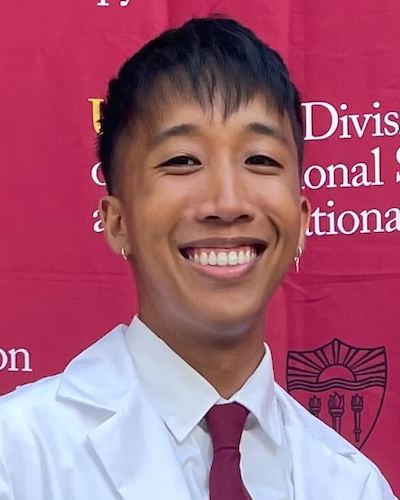
Finding My Calling: Journey to Occupational Therapy from the Heart of the Philippines ⟩
January 25, 2024, by Jared
Diversity International
Six years ago, I strolled along the dirt road with my mom and sister to visit the province in the Philippines where my relatives still live. Around me were homes made of crumbling concrete and tarped roofs, and fences made of plastic water bottles. Kids were running around barefoot and the broken eyes of titas and titos were trying to sell the last of their produce for the day. But behind the exterior of hardship, the Filipino culture was alive and well. Children danced traditional Filipino dances, elders played rich music once played by their ancestors, and lolas sang to the whole province on their outdated karaoke machines. The sight of a colorful culture thriving despite the poverty that surrounded my own people was not only inspiring, but life-changing in terms of my future goals of being an occupational therapist.
Occupational therapy is still in its early stages of development in the Philippines. Upon our visit to the therapy clinic where my aunt worked, I observed a modest setting — a plain room with limited equipment — where therapeutic interventions were provided to a diverse range of Filipinos. As I watched therapists treat patients, I remember feeling deeply troubled watching a young man who needed maximum assistance to move a rock from one area on a table to another. But even more so, I noted that these rudimentary interventions could be transferable and more widely used.
My aunt shared insights into the challenges faced by many individuals in the Philippines who struggle to resume their regular routines after experiencing physical disabilities. This difficulty arises from the inadequate access to proper care in medical facilities. The combination of impoverished living conditions and a shortage of occupational therapists contributes to a scenario where preventable disabilities go untreated.
Initially, I found her statements perplexing, especially considering that the interventions observed involved simple materials such as rocks, cups, and paper. However, upon reflection, I came to understand the larger issue at hand. The simplicity of the therapeutic materials highlighted not only a lack of awareness about occupational therapy in the country but also a lack of advocacy. This gap was particularly evident in impoverished areas, including my family’s province, where individuals faced challenges accessing essential rehabilitative services.
Although my experience at my aunt’s clinic in the Philippines was brief, it left a lasting impact on determining the focus in my future occupational therapy career. As someone who is constantly inspired by the beauty of my own culture, I realized that I wanted to help people carry on traditions that gave them purpose, whatever their background. In undergrad, I adopted a Philippine Studies minor and served on the executive board of Kasamahan, the University of San Francisco’s Filipino cultural organization — this has given me a holistic perspective of how people’s engagement in their culture can deeply affect their quality of life. These experiences solidified my desire to give client-centered interventions that help the individual stay as connected to their occupations as possible, whether they are cultural or not.
Equally important, I want to use my awareness of negatively perpetuated systems in both the United States and Philippines to advocate for the profession and bring awareness to the field. From the occupational therapists that I have shadowed under during fieldwork and volunteering, I’ve learned how simple yet life-changing interventions can be. From analyzing post rotary nystagmus in children on the Autism spectrum to teaching older adults how to safely ambulate with a walker, my experiences have challenged me to explore how interventions can be transferred to communities that are in need of our services.
In developing nations like the Philippines, there is potential to further advocate and educate about occupational therapy to enable individuals to actively consider it as a valuable therapeutic option.
I hope to bring my passion and future knowledge of occupational therapy to the Philippines and eventually be an educator for future generations. This is in hopes that we can reform health care policies to accommodate those from lower socioeconomic classes and render needed professional service.
Through occupational therapy, I have the opportunity to apply the underlying practices and values of the traditions that I hold dear to my heart. My experience in the Philippines, a developing nation rich in cultural tradition has made me appreciate the sacredness as well as the practicality of healing and movement. I am profoundly motivated to help others share this view and work as agents of positive change in the world.
⋯
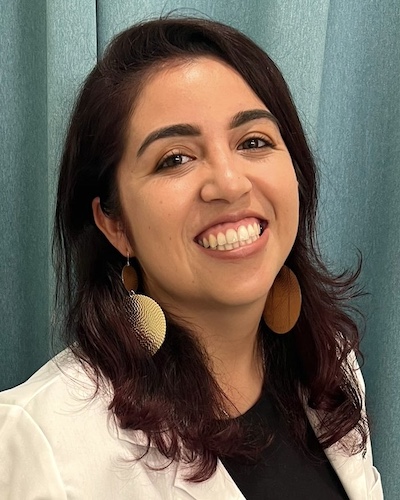
New Year, New Me? ⟩
January 17, 2023, by Tania
Classes Community Diversity First-Gen School/Life Balance
Starting a new year can feel weird at times because there is this weird societal pressure of being the best new version of yourself. However, if you ask me, I am already a different person from 5 months ago. In fact, each day we evolve. At times, we sit reminiscing on the things we didn’t accomplish the years before. Our minds go on and on about the should haves and could haves but we don’t have control over those anymore.
Maybe this year is not about reinventing or being the newest best version of yourself but instead about being patient, caring, and loving to the person you are right now. I invite you to instead or in conjunction with writing new year’s resolutions, take the time to celebrate ALL your accomplishments (big and small) and appreciate your life’s journey. This year block the outside noise!
This is because as first-generation, low-income, Latinx students we usually carry the weight of our families. We are forced to create our paths, we navigate unknown territories and we receive plenty of no’s along the way. Being the first in the family to do something different requires many “mistakes” that later turn into lessons for those that come after us. However, the beauty of being a first-generation, low-income, Latinx student is that we don’t take NO for an answer. It may take us longer, it may take us a few tears, and it may take us finding different ways to get there, but we are determined to accomplish what our heads and hearts set themselves to do because our families already sacrifice too much. We know how it was before so the only direction is forward. In my case, little Tania didn’t wake up every day at 3 am to commute across the US-Mexico border for 10 years for today’s Tania to give up now.
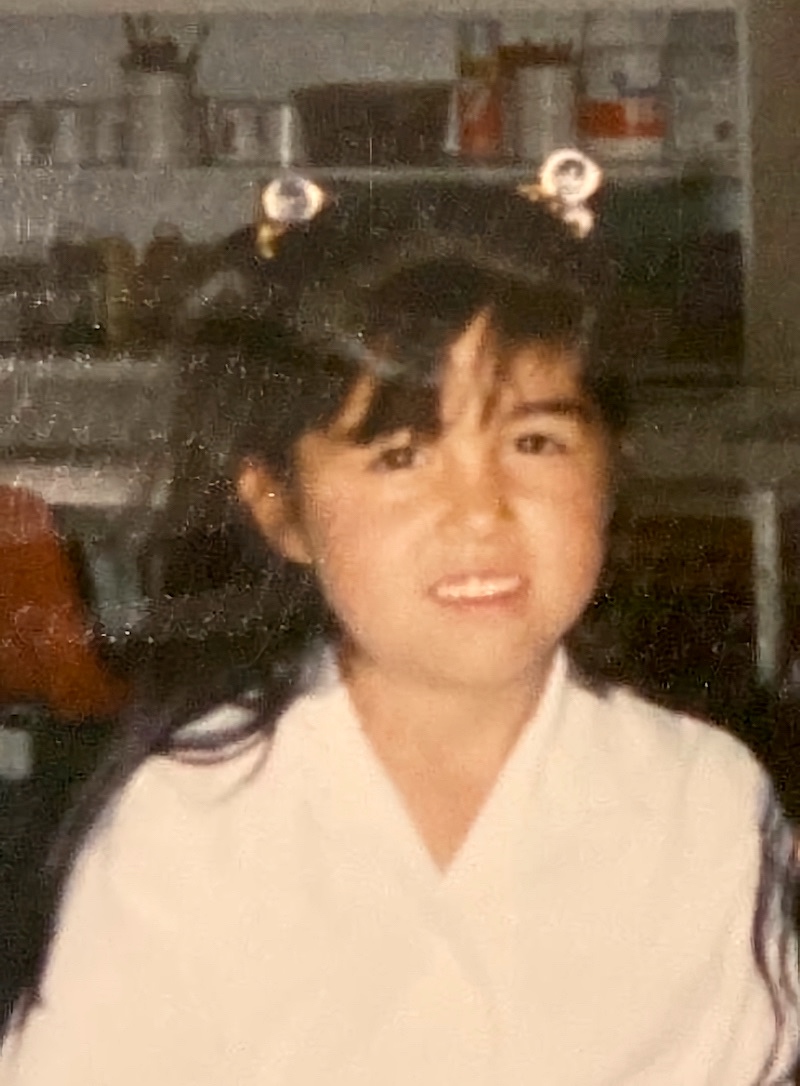
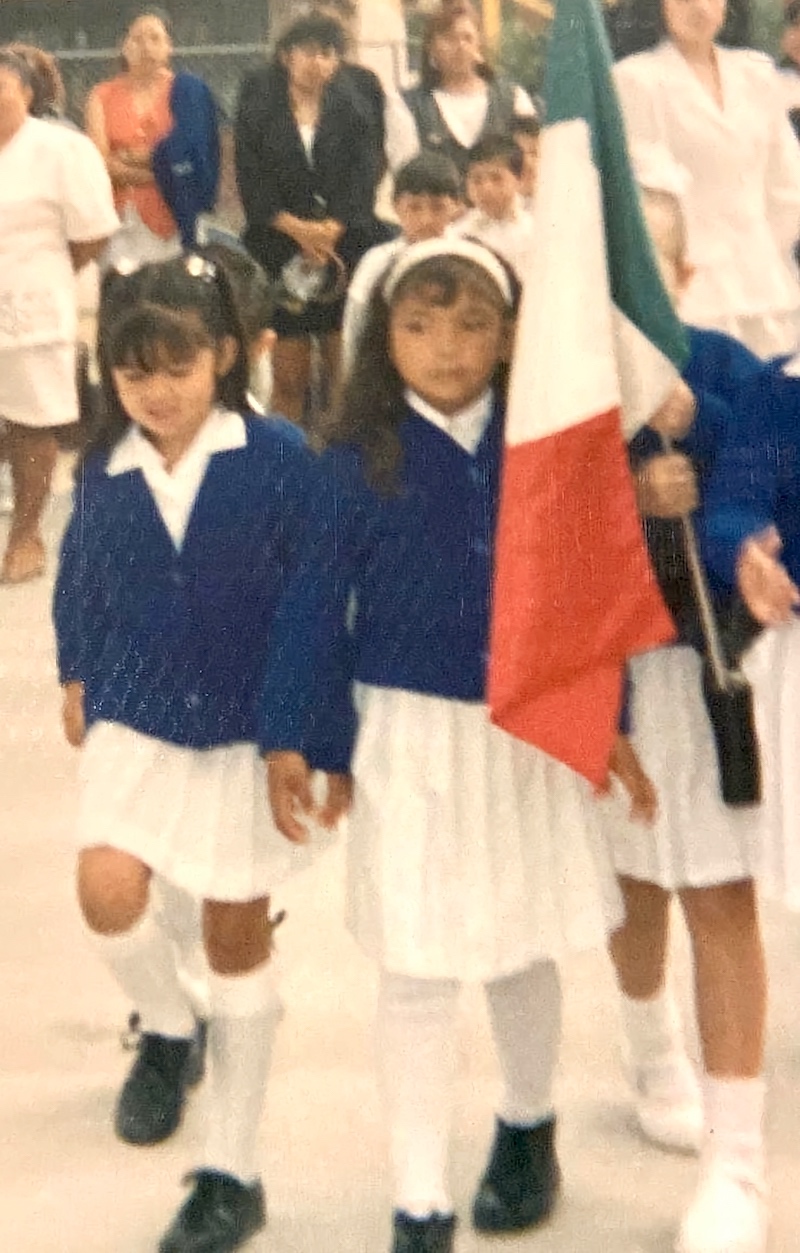
Little me would be so proud to see what was once a dream is now a reality. Present day Tania is working towards becoming a doctor in occupational therapy and accepted a paid residency at Children’s Hospital Los Angeles: University Center for Excellence in Developmental Disabilities (UCEDD)!
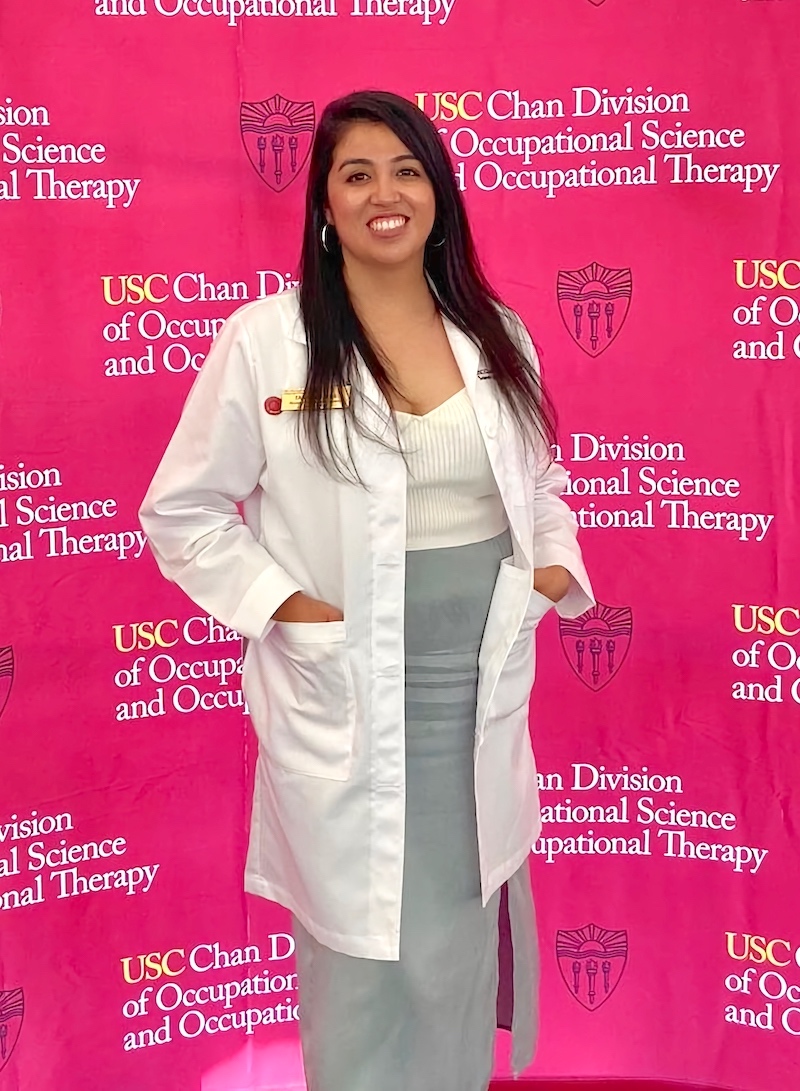
This 2023 there is no newest best version of me and there is no need for the newest best version of yourself either. So as hard as it can be, appreciate the now and be patient with who you are because past you once dreamed of who and where you are today. I’m sure little you is proud of how far you have come and your validation is the one that matters!
⋯
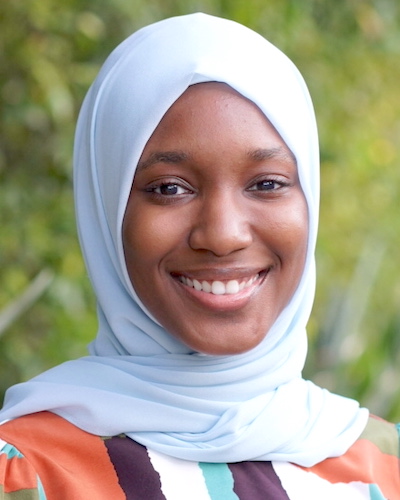
Silver Linings ⟩
December 3, 2022, by Aisha
On Thursday, my team and I presented a poster on our community program proposal for our OT 537 course. I felt incredibly proud of the hard work we put into developing a justice-based occupational therapy program called Silver Linings to help previously incarcerated youth successfully reintegrate into the community. Using an occupational therapy lens, we aim to reduce recidivism which is the likelihood of rearrests, and occupational deprivation, which is when external circumstances restrict or limit people’s ability to engage in meaningful activities that promote health and well-being. As many of you may know, youth of color are disproportionately represented in the criminal justice system and treated worse than their white counterparts (Gigante et al., 2022). Although this is a proposal for a class project, my team members and I are passionate about increasing access for marginalized groups and promoting occupational justice. Therefore, we would like to see programs like this implemented in the future. It was encouraging to hear Dr. Arameh Anvarizadeh, one of our inspirations and role models in this field, tell us we should make this happen. That moment was invigorating and reignited the drive I felt when I began OT school!
My incredible team members and me at our poster presentation! Shout out to Dejaney, Zoë, and Sadie. 😊
I’m not going to lie; this semester was very challenging. I struggled with imposter syndrome, burnout, and personal issues while balancing family obligations, work, and school. All of these factors impacted my motivation and mental well-being. I’ve had one too many crying sessions while battling self-doubt and the urge to give up.
No matter how challenging a situation is, there are always silver linings. As I write this, I am grateful for my countless blessings this semester. The first is my supportive family, friends, peers, and professors, who constantly encourage me to take care of myself, produce quality work, and remind me of how far I’ve come. I am forever thankful to be surrounded by brilliant human beings who challenge and inspire me to be the best version of myself personally and professionally. Second, I discovered rock climbing, my new hobby and restorative occupation. Lastly, in the field of occupational therapy, where there is only 5% Black representation, I am filled with joy to be in the midst of incredible history in the making.
Some of my peers, a group of Black women who will be future occupational therapists, and Dr. Anvarizadeh!
Gigante, C. I., Rak, K., Kaplan, A., Helmcamp, L., Otoo, C., & Sheehan, K. M. (2022). A community-based youth diversion program as an alternative to incarceration, Illinois, 2017–2019. American Journal of Public Health, 112(9), 1265–1268. https://doi.org/10.2105/AJPH.2022.306946
⋯






